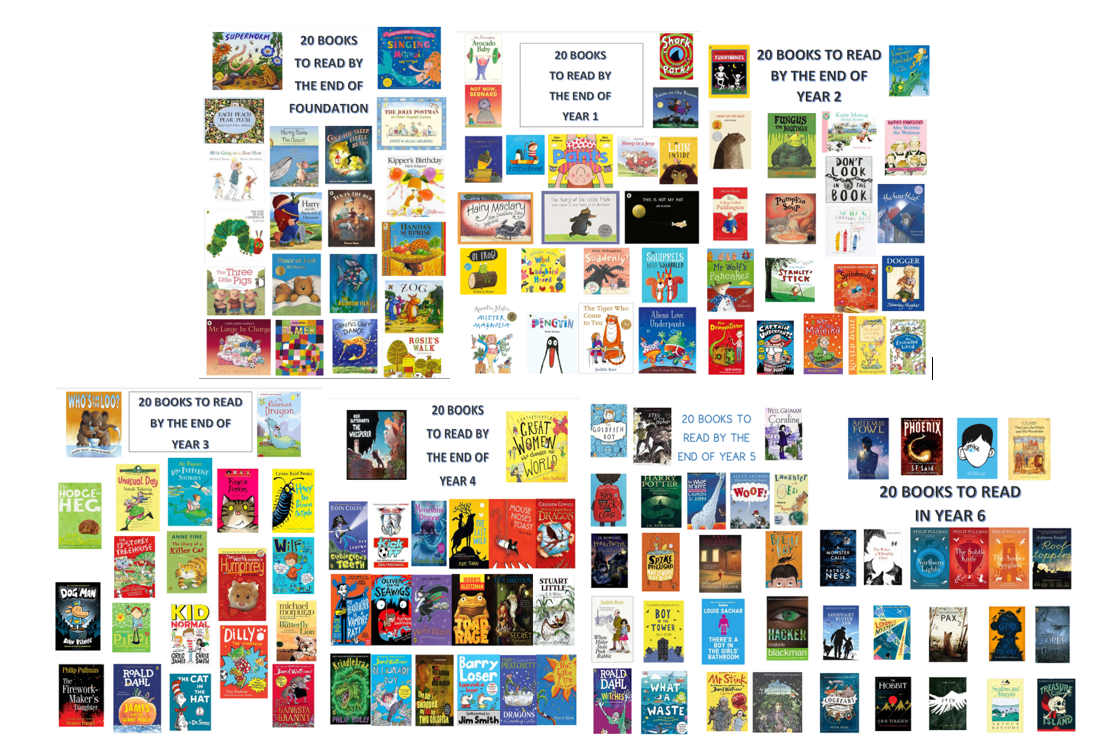English
READING:
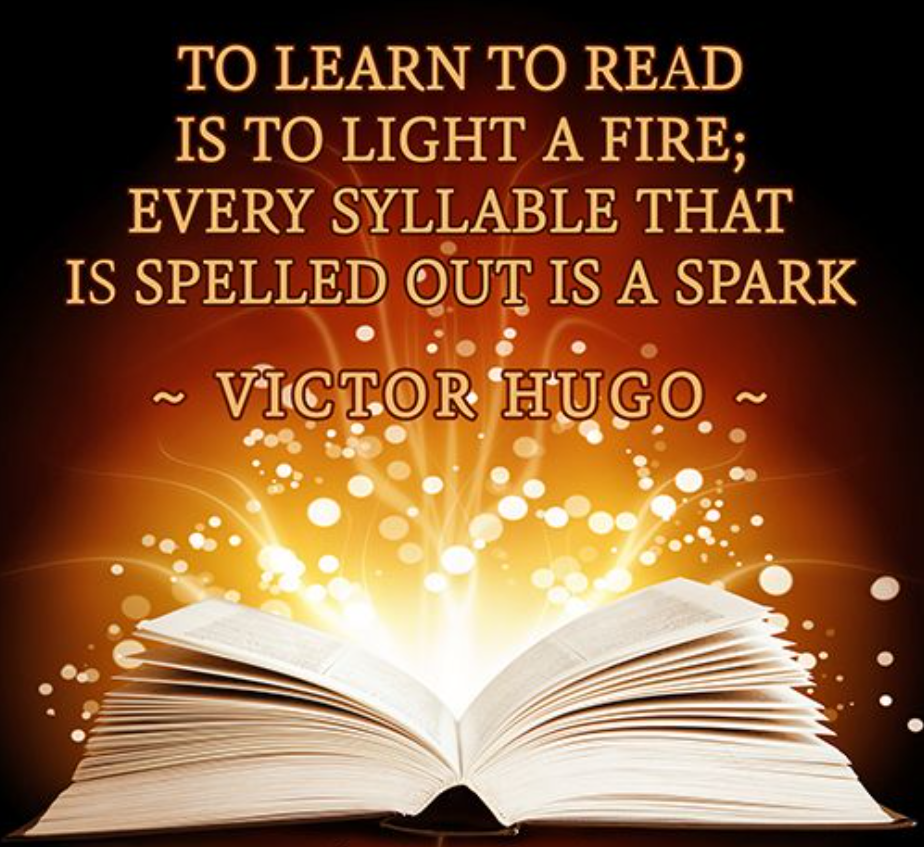
"I love Library Club because we get to share books with children in other year groups and there’s so many great books to choose from in our library."
At Market Harborough CE Academy, reading is at the heart of our curriculum and it is therefore one of our core Golden Threads; ‘Confident Communicators, Passionate Readers’.
In education, we know that reading is fundamental for our children’s future. Those children who read and keep reading have better academic outcomes at 16 and are more likely to be involved in their community, which is why we know that we play a vital role in developing the children’s love of reading, seeing how books open up a whole new world to investigate!
Our aim is for all children to become fluent, competent, and expressive readers. To achieve this, the children are given daily opportunities independent reading, as well as sharing the enjoyment of a book with their class. The children are taught a number of skills, so they can fully explore the text, such as summarising, finding information and making predictions. These are known as our Reading Gems.
Through the phonics scheme, which is introduced in EYFS at the start of the year, we provide the children with the necessary skills to develop their skills and fluency of reading, and continue to foster their love of Reading with a staged scheme right through to the end of Year 6.
We also have a stunning library designed as an enchanted forest with a winding path leading through the bookshelves, reading buddies where our older children support our younger children with their reading, classroom reading corners and the challenge of completing each year group’s Top 20 book list. In addition to all of this, the children are provided with regular opportunities to read aloud in the classroom, in assembly, and to the wider community.
Our Library & the 'Top 20 Books' for each year:
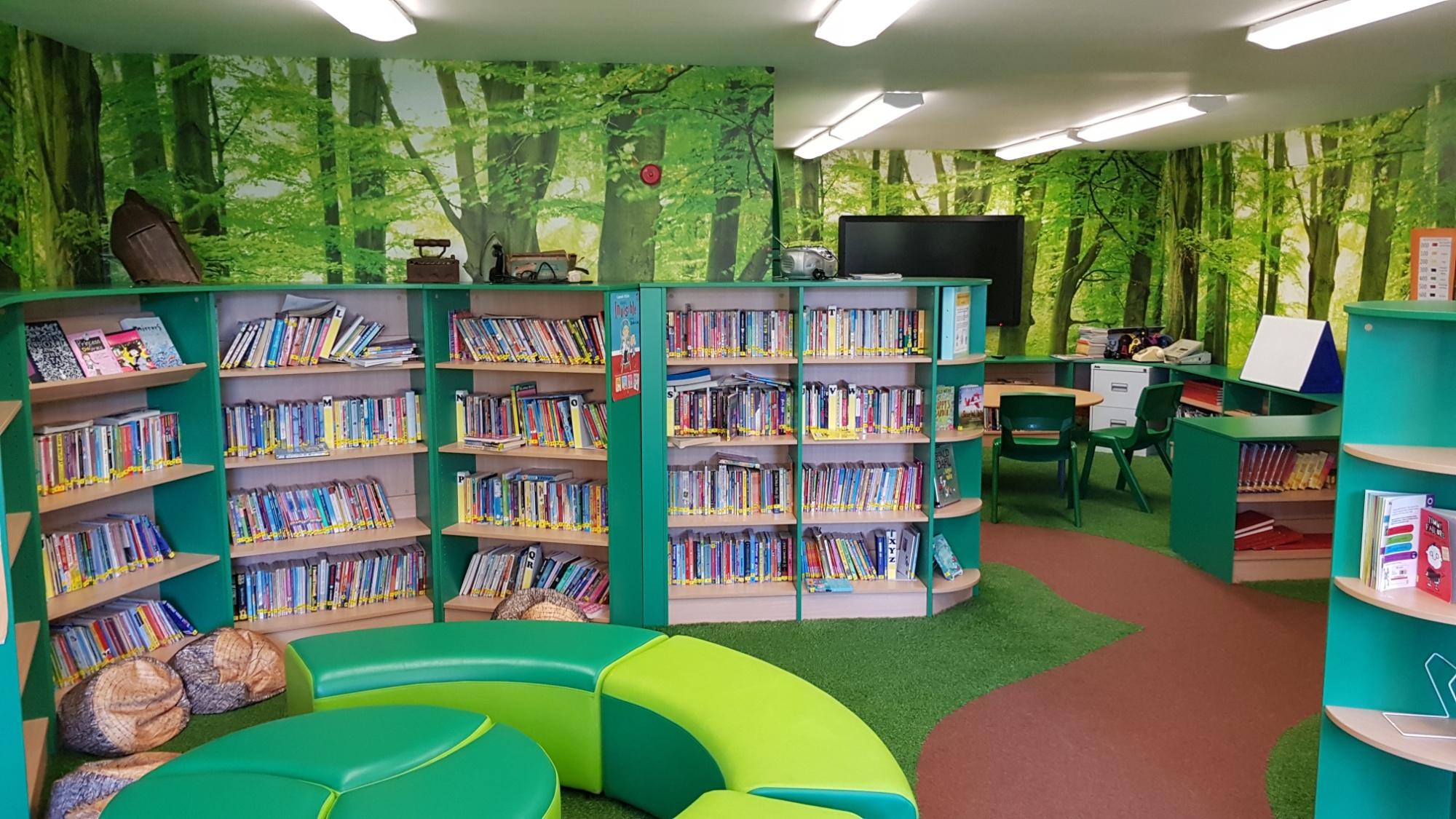
WRITING:
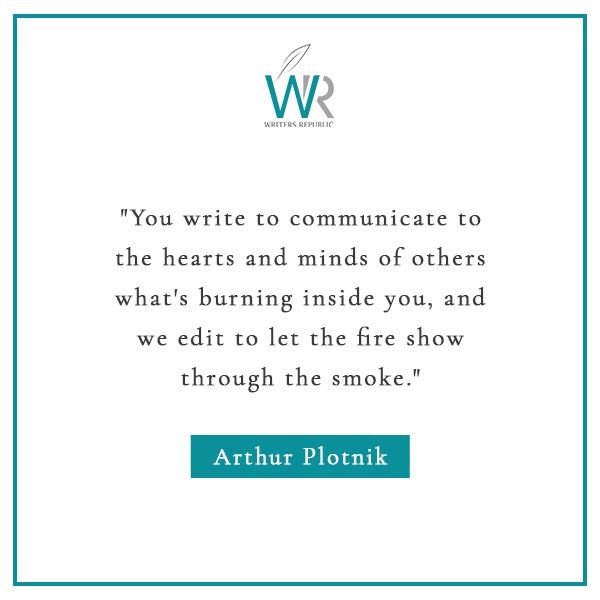
"First, we work together to study a book, poem or video and collect ambitious vocabulary. Next, we put our ideas down as a draft. Then, we revise our drafts by choosing different adjectives or checking it makes sense. Finally, we get to show off everything we’ve learnt in our Hot Write, which we do in our best handwriting. We make our writing even better when we use our purple polishing pens to edit for punctuation and check we’ve used the right spellings."
Using a range of genres and engaging, real-life stimuli, children across the school draft, revise and edit their writing to produce high quality outcomes; some of which are shared with the community through displays and recitals.
In addition, Foundation and Key Stage 1 follow Sounds-Write; a linguistic based phonics programme that teaches children to read, write and spell from the sounds they say and hear.
Key Stage 2 spelling sessions follow a Word Study approach to identify patterns within word lists and discuss their etymology.
Through modelling, children self and peer assess against their year group expectations for content, structure, and grammar from Learn-AT’s English Curriculum.
We use Schofield and Sims resources to structure our approach to the teaching of handwriting. Children progress from making patterns, to forming printed letters, and then to developing a joined handwriting style.
PHONICS
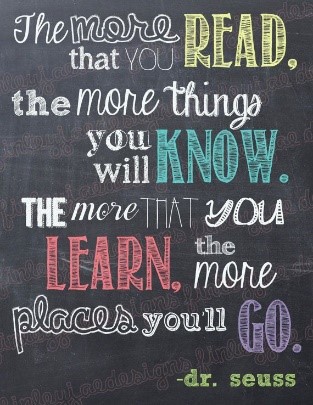
At Market Harborough Church of England Academy, we believe the teaching of phonics is a fundamental skill, which will form the basis of the children’s learning throughout their school journey. To ensure the children get off to the best start, we use Read Write Inc Phonics (RWI). Mrs Marchesi is our Read Write Inc lead teacher so if you have any phonics-related questions, please contact the school office who can refer you to her.
Read Write Inc (RWI) is a phonics complete literacy programme which helps all children learn to read fluently and at speed so they can focus on developing their skills in comprehension, vocabulary and spelling. The programme is designed for children aged 4-7. We may continue teaching RWI to children beyond the age of 7, as we use a stage not age approach.
RWI was developed by Ruth Miskin and more information on this can be found at https://ruthmiskin.com/en/find-out-more/parents/.
In Read Write Inc Phonics, the children:
- Learn 44 sounds and the corresponding letters/letter groups using simple picture prompts – see below
- Learn to read and write words using Fred talk and sound blending
- Read from a range of storybooks and non-fictions books matched to their phonic knowledge
- Work with a learning partner so that they answer every question
- Develop comprehension skills in stories by answering 'Find It' and 'Prove It' discussion questions
- Learn to build sentences by rehearsing sentences out loud before they write
The children are taught the 44 sounds in 3 sets.
Set 1 Sounds are taught together with rhymes to help children form the letters correctly and instantly recognise sounds ready for blending. At this stage we do not use the letter names.
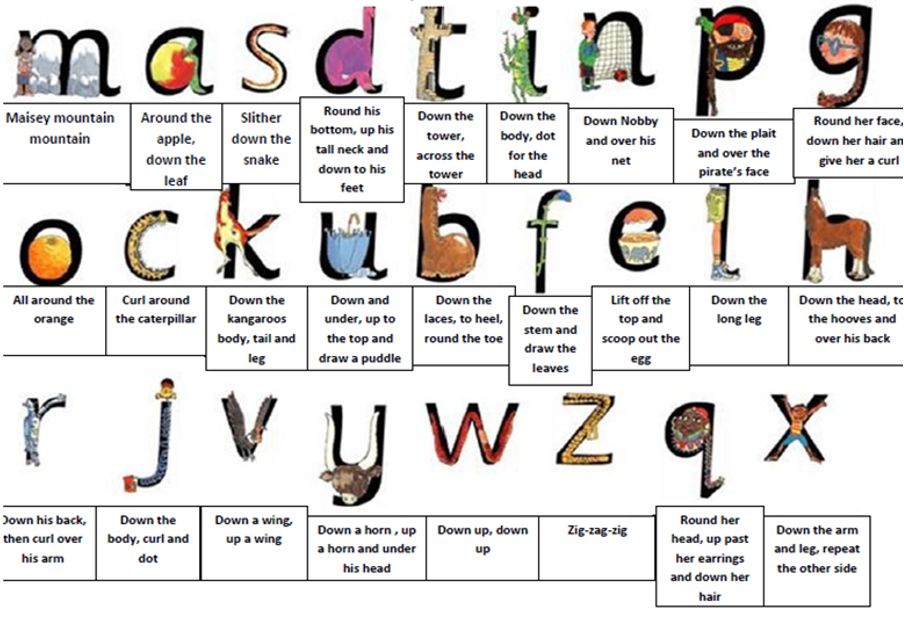
We use pure sounds (‘m’ not’ muh’,’s’ not ‘suh’, etc.) so that your child will be able to blend the sounds into words more easily. Use this link for help https://www.ruthmiskin.com/en/find-out-more/parents/#lg=1&slide=3
At school, we use a toy frog called Fred who is an expert on sounding out words. We call this, ‘Fred Talk’. For example, m-o-p, c-a-t, m-a-n, sh-o-p, b-l-a-ck
The following video is an example of blending sounds with Fred. https://www.youtube.com/watch?v=dEzfpod5w_Q
Next, the children are taught Set 2 Sounds. Then, Set 3 Sounds.
|
Set 2 Sounds |
||
|
Sound
|
Phrase |
Words to practice reading and spelling |
|
ay |
ay: may I play |
play, day, may, way, say, spray |
|
ee |
ee: what can you see |
see, three, been, green, seen, sleep |
|
igh |
igh: fly high |
high, night, light, fright, bright, might |
|
ow |
ow: blow the snow |
blow, snow, low, show, know, slow |
|
oo |
oo: poo at the zoo |
too, zoo, food, pool, moon, spoon |
|
oo |
oo: look at a book |
took, look, book, shook, cook, foot |
|
ar |
ar: start the car |
car, start, part, star, hard, sharp |
|
or |
or: shut the door |
sort, short, horse, sport, fork, snort |
|
air |
air: that’s not fair |
fair, stair, hair, air, chair, lair |
|
ir |
ir: whirl and twirl |
girl, bird, third, whirl, twirl, dirt |
|
ou |
ou: shout it out |
out, shout, loud, mouth, round, found |
|
oy |
oy: toy for a boy |
toy, boy, enjoy |
|
Set 3 Sounds |
||
|
Sound
|
Phrase |
Words to practice reading and spelling |
|
ea |
Cup of tea |
clean, dream, seat, scream, real |
|
oi |
Spoil the boy |
join, voice, coin |
|
a-e |
Make a cake |
make, cake, name, same, late, date |
|
i-e |
Nice smile |
smile, white, nice, like, time, hide |
|
o-e |
Phone home |
home, hope, spoke, note, broke, phone |
|
u-e |
Huge brute |
tune, rude, huge, brute, use, June |
|
aw |
Yawn at dawn |
saw, las, dawn, crawl, paw, yawn |
|
are |
Care and share |
share, dare, scare, square, bare |
|
ur |
Nurse with a purse |
burn, turn, spurt, nurse, purse, hurt |
|
er |
A better letter |
never, better, weather, after, proper, corner |
|
ow |
Brown cow |
how, down, brown, cow, town, now |
|
ai |
Snail in the rain |
snail, paid, tail, train, paint, rain |
|
oa |
Goat in a boat |
goat, boat, road, throat, toast, coat |
|
ew |
Chew the stew |
chew, new, blew, flew, drew, grew |
|
ire |
Fire! Fire! |
Fire, hire, wire, bon/fire, in/spire, con/spire |
|
ear |
Hear with your ear |
hear, dear, fear, near, year, ear |
|
ure |
Sure it’s pure |
pure, sure, cure, pic/ture, mix/ture, ad/ven/ture |
Read Write Inc Vocabulary
- Red and Green words - Within all RWI sessions, children will be exposed to red and green words to help them become speedy readers. Red words are words that are not easily decodable and challenge words to extend children’s vocabulary. Green words are linked to the sounds they have been learning and are easily decodable.
- Dots and dashes - added underneath a word to break it down into the sounds.
- Hold a sentence - an activity that encourages children to remember a whole sentence while focusing on spelling and punctuation.
- Build a sentence - gives children the opportunity to create their own sentence.
- Edit a sentence - allows the children to critique a sentence using their knowledge of spelling punctuation and grammar.
- Alien words - children have to apply their sound recognition skills by reading ‘nonsense words’. These words feature heavily in the Year One Phonics Screening Check in the summer term.
The following link provides lots of free Read Write Inc. Phonics resources to help your child, including eBooks,
ORACY:
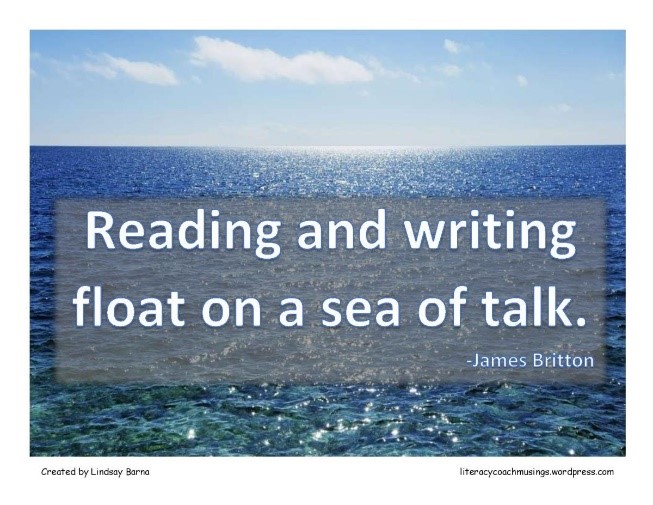
"I like to use new vocabulary that I have learnt as it makes me feel clever when I am talking!"
At Market Harborough Church of England Academy, we want our children to be confident communicators. We aim to provide oracy-rich classrooms where talk is valued. Good communication skills feed into all areas of the curriculum and prepare children for participation in the wider community.
In all areas of the curriculum, children are encouraged to answer questions thoroughly using rehearsed sentences, sentence stems and sentences that are modelled by the teacher. We ask them to speak in full sentences and extend their answers by prompting them and asking further questions.
In Foundation stage and Key Stage 1, oracy is developed through story time, role-play, modelled vocabulary and partner talk. In Key Stage 2, our children are encouraged to discuss topics and hold debates as well as perform in pairs, small groups and as a class.
Children across school are encouraged to listen attentively and respond accordingly. They have opportunities to discuss, explain and describe situations whilst considering the points of view of others. They learn to use language in imaginative ways and to express their ideas and feelings through drama and through sharing stories, they present in assemblies, perform in school productions, do readings in church services, share their work with the peers and perform poetry recitals to name but a few.

